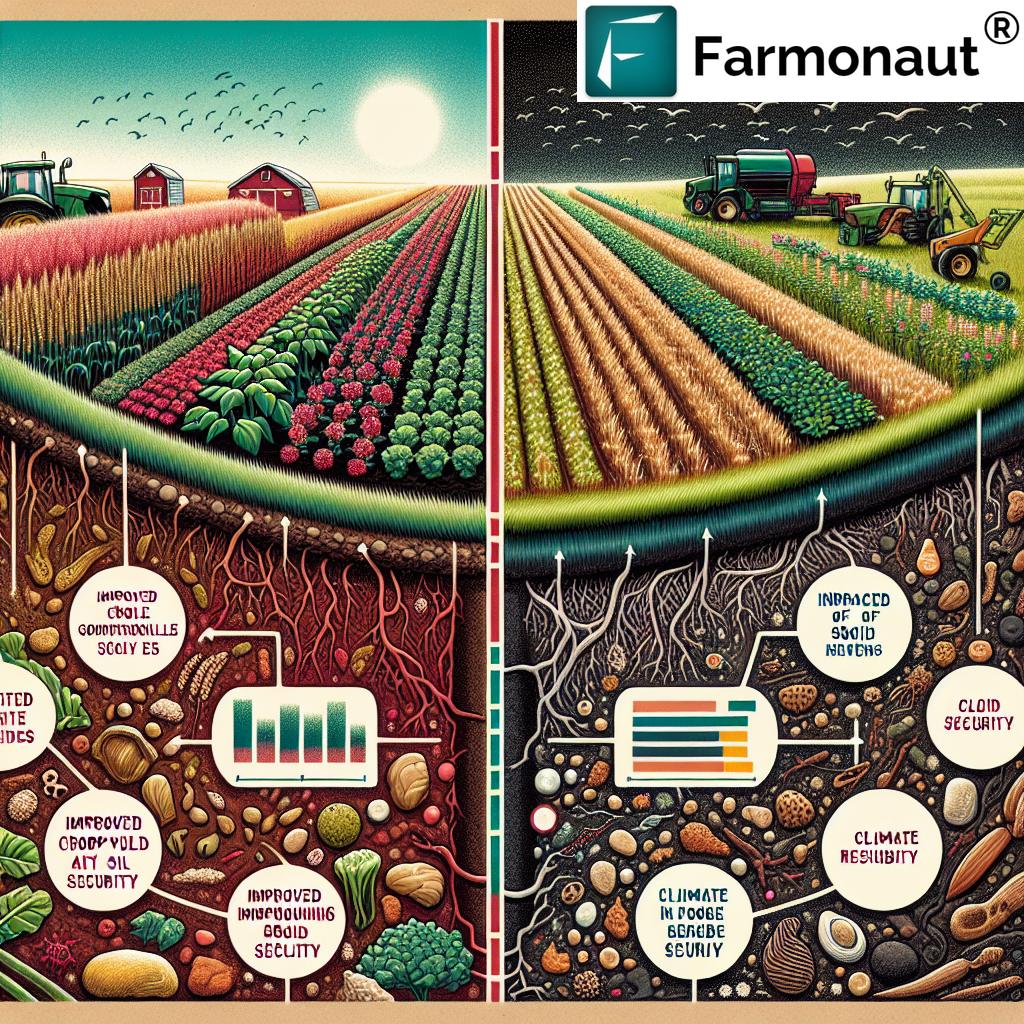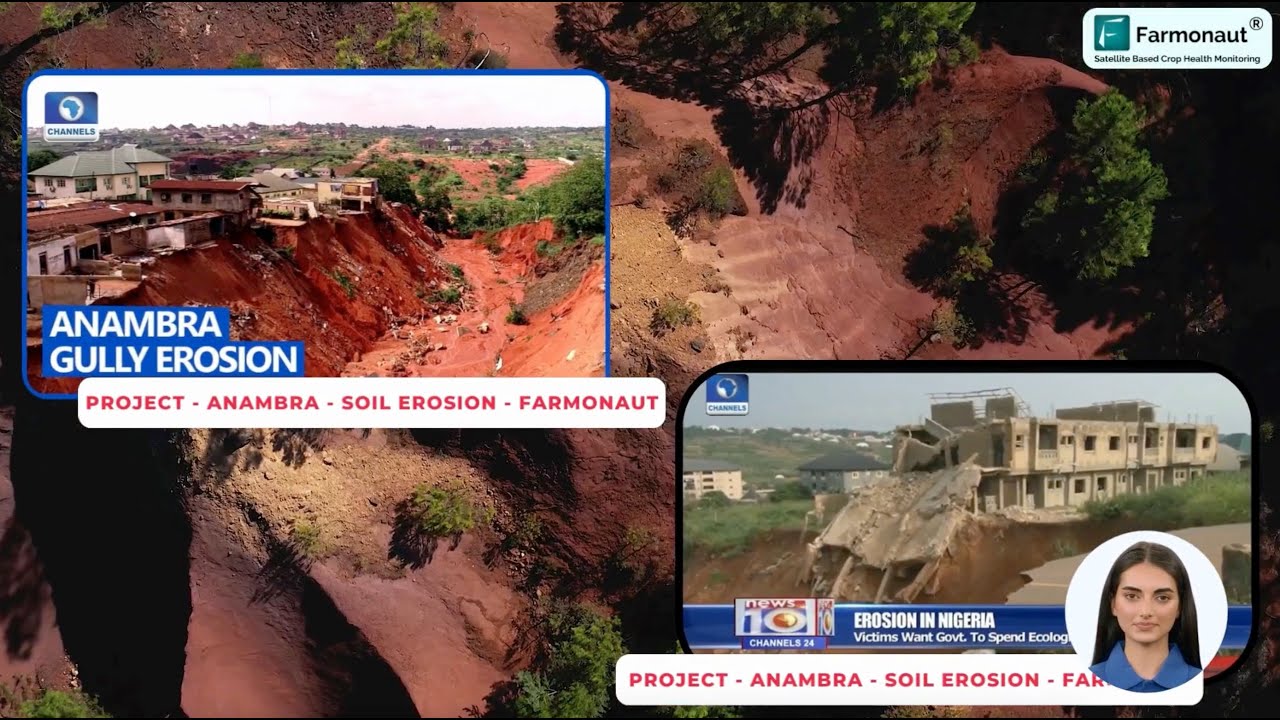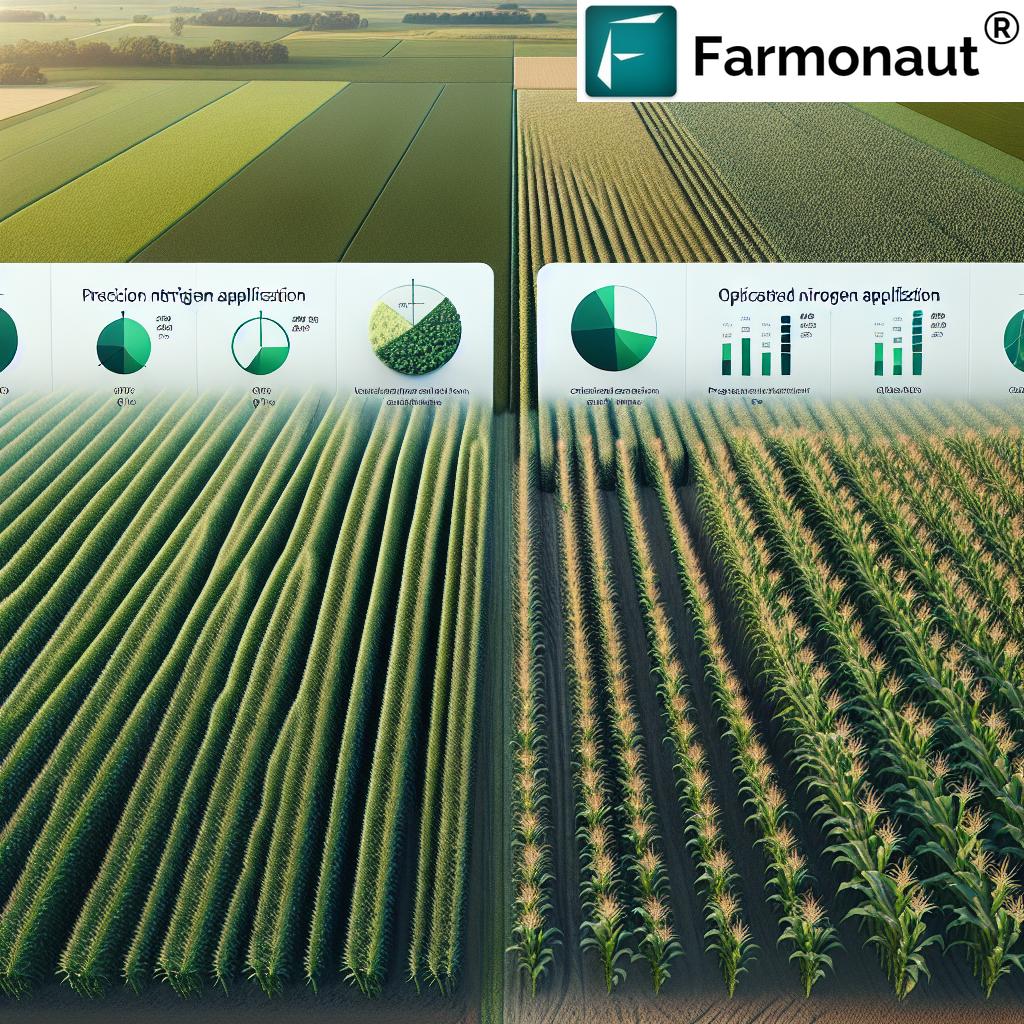Montana Soil Health Week: Boosting Crop Yields and Food Security Through Sustainable Farming Practices
“Montana’s Soil Health Week, recognized by bipartisan resolution, educates farmers and public about sustainable farming practices across the state.”
Welcome to our comprehensive exploration of Montana’s Soil Health Week, a pivotal event that underscores the critical importance of soil health in agriculture and environmental sustainability. As we delve into this topic, we’ll uncover how this statewide celebration is shaping the future of farming in Montana and beyond.
The Significance of Soil Health Week in Montana
Montana’s Soil Health Week, recognized by the state legislature through a bipartisan resolution in 2023, marks a significant milestone in the state’s commitment to sustainable agriculture. This week-long celebration, held annually in the first week of April, brings together farmers, ranchers, scientists, and policymakers to focus on the fundamental role of healthy soils in our ecosystem and economy.
At Farmonaut, we understand the critical importance of soil health in agriculture. Our satellite-based farm management solutions are designed to help farmers monitor and improve soil health, ultimately leading to better crop yields and more sustainable farming practices.

The Role of Healthy Soils in Agriculture
Healthy soils are the foundation of productive agriculture. They play a crucial role in:
- Increasing crop yields
- Enhancing food security
- Improving climate resiliency
- Boosting nutrition in food crops
As State Senator Butch Gillespie, R-Ethridge, noted, “Not everything we do down here is really, really popular, but this was one that was. When we were pushing it through the committees and then on the floor, my goodness sakes, we were getting supportive calls from all over the state.”
This widespread support underscores the growing recognition of soil health’s importance across Montana’s diverse agricultural landscape.
Sustainable Farming Practices Highlighted During Soil Health Week
During Montana’s Soil Health Week, various sustainable farming practices are showcased and discussed. These practices not only improve soil health but also contribute to increased crop yields and enhanced food security. Let’s explore some of these practices in detail:
| Farming Practice | Soil Health Benefits | Estimated Yield Increase |
|---|---|---|
| Cover Cropping | Increases organic matter, reduces erosion, improves water retention | 10-20% |
| No-Till Farming | Enhances soil structure, increases water infiltration, reduces soil disturbance | 5-15% |
| Crop Rotation | Improves nutrient cycling, reduces pest pressure, enhances soil biodiversity | 10-25% |
| Organic Fertilization | Boosts microbial activity, improves soil structure, enhances nutrient availability | 15-30% |
These sustainable farming practices not only benefit soil health but also contribute to increased crop yields and improved food security. At Farmonaut, we provide tools that help farmers implement and monitor these practices effectively. Our crop plantation and forest advisory services offer tailored recommendations based on soil health data and satellite imagery.
The Impact of Soil Health on Food Security and Nutrition
“Healthy soils contribute to improved crop yields, enhanced food security, and increased climate resiliency in Montana’s agricultural landscape.”
The connection between soil health and food security is a critical aspect highlighted during Montana’s Soil Health Week. Healthy soils are more productive, resilient, and capable of supporting diverse crop systems. This directly translates to improved food security and better nutrition for communities.
As central Montana rancher Bill Milton aptly put it, “There is probably nothing more fundamental to life than soil; all the plants and all the animals that eat grass like mine need soil.” This statement encapsulates the far-reaching impact of soil health on our food systems and ecosystems.
At Farmonaut, we recognize the importance of soil health in ensuring food security. Our carbon footprinting tools help farmers monitor and reduce their environmental impact, contributing to more sustainable and resilient food production systems.
Climate Resiliency and Soil Health
One of the key themes of Montana’s Soil Health Week is the role of healthy soils in enhancing climate resiliency. As we face increasing climate challenges, the ability of our agricultural systems to withstand and adapt to these changes becomes crucial.
Healthy soils contribute to climate resiliency in several ways:
- Improved water retention, reducing the impact of droughts
- Enhanced carbon sequestration, mitigating greenhouse gas emissions
- Better nutrient cycling, reducing the need for synthetic inputs
- Increased biodiversity, promoting ecosystem stability
Farmonaut’s technology plays a crucial role in monitoring and enhancing climate resiliency. Our large-scale farm management solutions provide real-time data on soil health indicators, helping farmers make informed decisions to improve their farm’s resilience to climate challenges.

Education and Awareness: Key Components of Soil Health Week
A significant aspect of Montana’s Soil Health Week is its focus on education and awareness. Events across the state bring together farmers, ranchers, scientists, and the public to learn about sustainable farming practices and soil conservation techniques.
These educational initiatives cover a wide range of topics, including:
- Soil testing and analysis techniques
- Innovative soil management strategies
- The role of microorganisms in soil health
- Water management and irrigation efficiency
- The economic benefits of soil health practices
At Farmonaut, we support these educational efforts through our technology. Our AI-powered advisory system, Jeevn AI, provides personalized recommendations to farmers based on soil health data, weather patterns, and crop-specific information.
The Economic Impact of Soil Health
While the environmental benefits of healthy soils are clear, Montana’s Soil Health Week also highlights the significant economic advantages for farmers and the state’s economy as a whole.
Improved soil health can lead to:
- Reduced input costs for fertilizers and pesticides
- Increased crop yields and quality
- Enhanced farm profitability
- Greater resilience to extreme weather events
- Potential for premium prices for sustainably grown products
Farmonaut’s crop loan and insurance solutions help farmers leverage their soil health improvements to access better financial products, further enhancing the economic benefits of sustainable farming practices.
Collaboration and Innovation in Soil Health
Montana’s Soil Health Week exemplifies the power of collaboration in driving agricultural innovation. The event brings together diverse stakeholders, including:
- Farmers and ranchers
- Agricultural scientists and researchers
- State legislators and policymakers
- Conservation organizations
- Agricultural technology companies
This collaborative approach fosters innovation and the sharing of best practices across the state’s agricultural community. At Farmonaut, we contribute to this innovation ecosystem through our advanced satellite-based farm management solutions and AI-powered advisory systems.
The Future of Soil Health in Montana
As we look to the future, the momentum generated by Montana’s Soil Health Week is set to drive continued progress in sustainable agriculture across the state. Key areas of focus for the future include:
- Integration of advanced technologies for soil health monitoring
- Development of policies to incentivize soil health practices
- Expansion of research into soil microbiome and its impact on crop health
- Increased adoption of precision agriculture techniques
- Greater emphasis on soil health in agricultural education programs
Farmonaut is committed to supporting this future vision through our ongoing innovation in agricultural technology. Our blockchain-based traceability solutions are helping to create more transparent and sustainable supply chains, further enhancing the value of soil health practices.
Participating in Montana’s Soil Health Week
For those interested in participating in Montana’s Soil Health Week, there are numerous ways to get involved:
- Attend local events and workshops
- Engage with soil health experts and farmers
- Implement soil health practices on your own property
- Support local farmers who prioritize soil health
- Advocate for policies that promote sustainable agriculture
At Farmonaut, we encourage participation in these initiatives and offer tools to help farmers implement and monitor soil health practices effectively. Our fleet management solutions can help agricultural businesses optimize their operations while implementing sustainable practices.
Conclusion: The Soil Health Revolution in Montana
Montana’s Soil Health Week represents a significant step forward in the state’s commitment to sustainable agriculture and environmental stewardship. By highlighting the critical role of soil health in crop yields, food security, and climate resiliency, this initiative is fostering a new era of agricultural practices that benefit both farmers and the environment.
As we continue to face challenges in agriculture and food production, the lessons and practices promoted during Soil Health Week will be increasingly important. The collaborative spirit and innovative approaches showcased during this event provide a model for other regions looking to enhance their agricultural sustainability.
At Farmonaut, we’re proud to support these efforts through our advanced agricultural technology solutions. By providing farmers with the tools they need to monitor and improve soil health, we’re contributing to a more sustainable and productive agricultural future.
Join us in celebrating Montana’s Soil Health Week and in working towards a healthier, more resilient agricultural landscape for generations to come.
FAQ Section
Q: What is Montana’s Soil Health Week?
A: Montana’s Soil Health Week is an annual event held in the first week of April, recognized by the state legislature to raise awareness about the importance of soil health in agriculture and environmental sustainability.
Q: Why is soil health important?
A: Soil health is crucial for improving crop yields, enhancing food security, increasing climate resiliency, and improving nutrition in food crops. Healthy soils are the foundation of productive and sustainable agriculture.
Q: What are some sustainable farming practices highlighted during Soil Health Week?
A: Key practices include cover cropping, no-till farming, crop rotation, and organic fertilization. These practices improve soil structure, increase organic matter, enhance water retention, and boost microbial activity.
Q: How does soil health contribute to climate resiliency?
A: Healthy soils improve water retention, enhance carbon sequestration, promote better nutrient cycling, and increase biodiversity. These factors help agricultural systems better withstand and adapt to climate challenges.
Q: How can I participate in Montana’s Soil Health Week?
A: You can attend local events and workshops, engage with soil health experts, implement soil health practices on your property, support local farmers who prioritize soil health, and advocate for sustainable agriculture policies.
Earn With Farmonaut: Join Our Affiliate Program
Earn 20% recurring commission with Farmonaut’s affiliate program by sharing your promo code and helping farmers save 10%. Onboard 10 Elite farmers monthly to earn a minimum of $148,000 annually—start now and grow your income!
Learn More About Our Affiliate Program
For developers interested in integrating Farmonaut’s satellite and weather data into their own systems, check out our API and API Developer Docs.





















Integration of advanced technologies for soil health monitoring is important